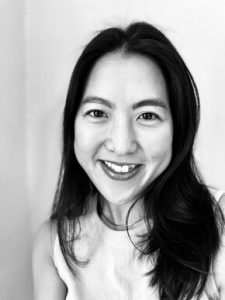In the spring of 2022, 34 PhD students from a range of academic disciplines at Penn participated virtually in Career Services’ PhD Career Exploration Fellowship (CEF) program, where they were matched with a host organization to learn about different careers beyond the professoriate. Bethany Swann, a PhD candidate in English, was placed as a Fellow with the Center for Teaching and Learning. Read about Bethany’s experience in the CEF below!
 Describe your experience working with your host:
Describe your experience working with your host:
Getting a firsthand glimpse into the inner workings of the Center for Teaching and Learning (CTL) has been such a highlight of my semester. I’ve been impressed with the quality of CTL workshops for graduate students on everything from incorporating dissertation research into instruction to creating stand-out application materials for the academic job market. During my initial meeting with Ian Petrie, Senior Associate Director at CTL, I mentioned my interest in Asian American literature and diasporic studies. Ian then connected me with Jamiella Brooks, Associate Director at CTL, who was instrumental in sharing resources to amplify my pedagogical approach to inclusion and deepen my understanding of equitable praxis.
What did you learn from this opportunity (about yourself, about career fields, the job search, etc.)?
Working at the CTL crystallized how joy-inducing and energizing teaching can be—but also how crucial it is to support teachers, especially graduate students who are essentially teachers in training. Although I had taken a few CTL workshops prior to this experience, I was able to invest more fully in a five-week minicourse led by Kirsten Lee, “Rethinking Inclusive Writing Practices for the Classroom.” This course was excellent—and I left equipped with evidence-based teaching strategies for generating creative and critical learning. I’ve always enjoyed teaching, but this experience reminded me what I love so much about it: the brainstorming and collaboration, the creativity and unpredictability, the sense of exhilaration that comes with dreaming up an original idea.
How does your CEF experience benefit your future career plans?
One of my goals was to refresh my teaching philosophy, and I was able to do this by extending my understanding of what bell hooks calls “engaged pedagogy.” Engaged pedagogy brings an intentional, holistic awareness to learning that empowers students to think of themselves as viable contributors to discourse communities in the humanities and beyond. I thought about the intersection of engaged pedagogy and poiesis, which, in my field of poetry and poetics, is a driving concept, a single word whose etymology is derived from the Greek term “to make.” Poiesis enacts creation by bringing into being something that did not previously exist. As such, poiesis connotes a powerful model for student-centered, engaged pedagogy because it underscores writing as an act of creation. It also suggests that the writing process can be messy and cerebral, demystifying the notion that a polished, well-researched piece of writing can be seamlessly churned out in one sitting.
What was the most valuable part of your CEF experience?
I found Diane Hull’s CEF workshop about informational interviews especially useful. Informational interviews are strategic, one-on-one conversations intended to give students a glimpse into navigating fields of interest and career choices from the perspective of who have been there before. As an extremely non-linear, creative thinker, I discovered that my own “professional narrative” is less reliant on a chronological sequence of events and more dependent on patterns and impulses; this realization helped me think expansively about how to frame my academic journey. I also appreciated the practical focus of this workshop on how to continue a conversation after an informational interview and maintain connection past the initial point of contact.
Top reason PhD students should apply to the CEF:
The CEF is a fantastic opportunity—especially for students who have been meaning to reach out to one of the host sites, but, for whatever reason, haven’t yet found the time or energy to initiate the process. As a fellow, I enjoyed having a formal role to help streamline that process. I also found it beneficial to have a framework for networking and establishing interdepartmental connections.




